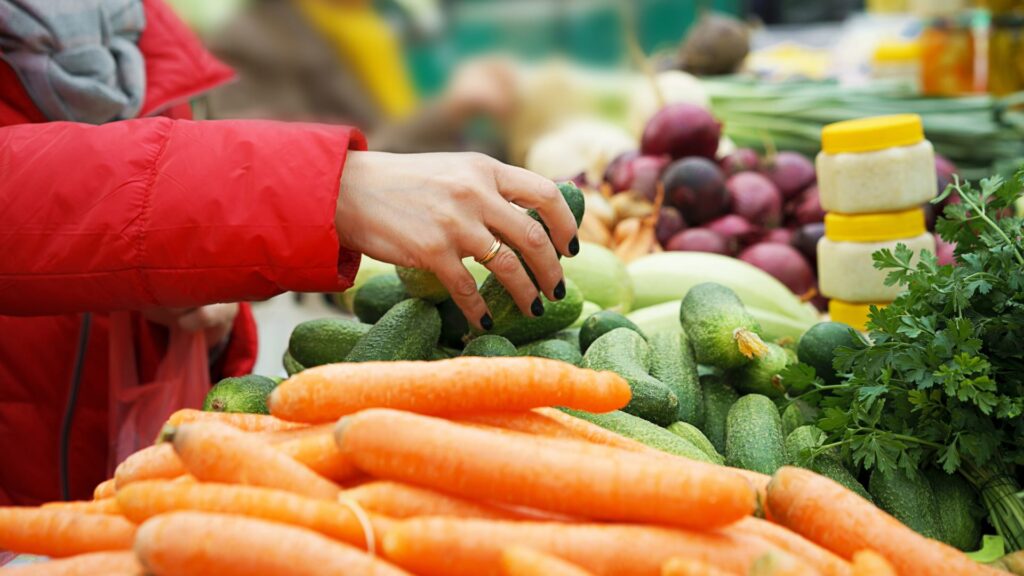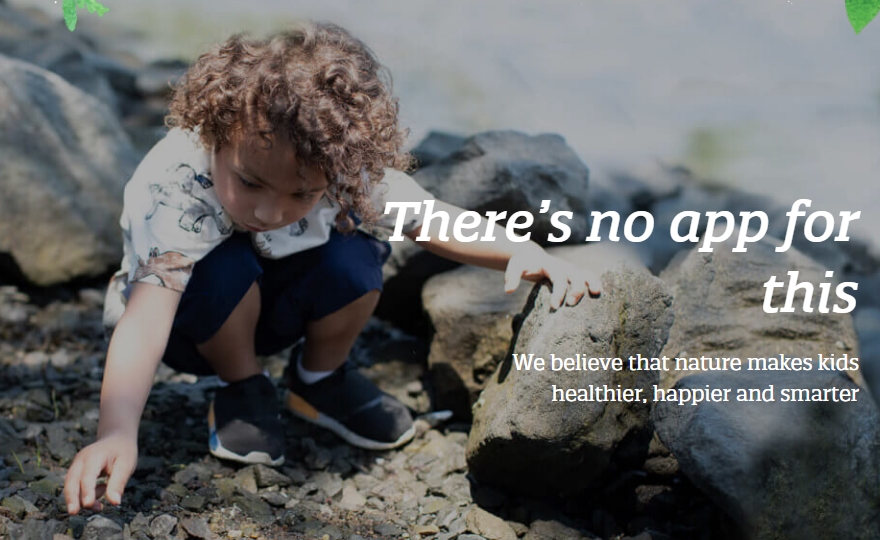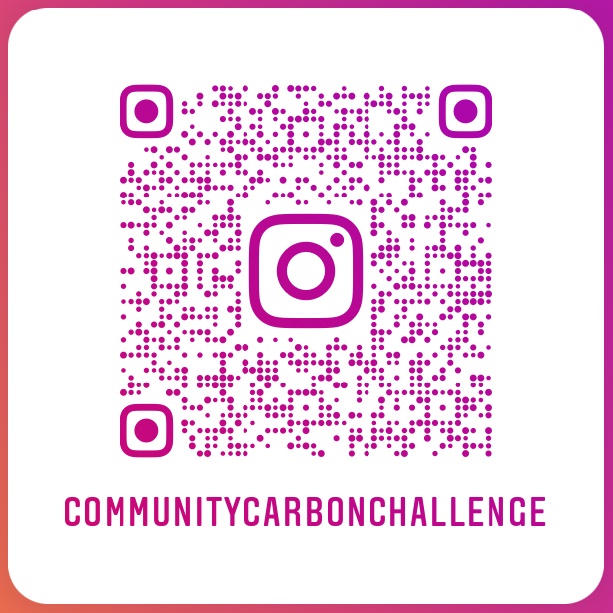Where Does My Food Come From?
I will refocus on where my food comes from. Fact: On average, about 50 per cent of vegetables besides potatoes, and 75 per cent of fruits eaten in Canada, are imported. Source

Growing our own, buying locally, eating in-season produce, and the choices we make at the supermarket are vital to food security and an independent Canadian economy. Sometimes our food choices become political.
Today, with the twin threats of climate change worldwide and economic bullying from the US, knowing where our food comes from is more important than ever.
We must become less dependent on imported food, particularly fresh fruits and vegetables from the US. Other trading partners can provide the food we will import in the future. In all areas, we must lessen our dependence on single source suppliers.
Reducing our carbon footprint, preserving biodiversity, knowing where our food comes from, and enjoying the health benefits of gardening is always a win, win, win.
For “growing your own” help, check out the CAM resources below. Find out where Canada’s fruits and vegetables come from here.
CAM Resources:
- Grow your own food | Buy locally grown | Eat in season.
- Grow Your Own – Vegetables
- Growing Your Own Food “Embracing Nature’s Cycle”
- Preserve Your Own Food “ Holy Victory Garden Batman”
- The Carbon Footprint of Food “Diet for a Small Planet”
Embrace a Carbon-Free Future
I look forward to and will advocate for a carbon pollution-free future. There is an element of science fiction in climate action. Quote: “We are shaping the future we long for and have not yet experienced. I believe that we are in an imagination battle.” – Adrienne Maree Brown.

We struggle to envision a carbon-free future. We are held captive by a desire to maintain the status quo and by the very human fear of change. Fossil fuel industry propaganda has reinforced our fears.
Therefore, we need to amplify the stories of people who are already building a better world. We need to speak of a future where we no longer burn fossil fuels; a future where we enjoy the benefits of reduced pollution; a future with natural habitat and biodiversity preserved; a future where we have mitigated the effects of climate change.
At the 400,000-strong climate march in New York City back in 2014, a huge banner declared: WE HAVE THE SOLUTIONS. Even today, many people still believe we do not. The Carbon tracker report from 2021 tells us that “the technical and economic barriers have been crossed and the only impediment to change is political.” Source
A carbon-free world is possible. Talk to your local representatives about the future you want and vote for that future in upcoming provincial and federal elections. Imagine a different world.
Resources
- ‘If you win the popular imagination, you change the game’: why we need new stories on climate | Climate Crisis | The Guardian
- The Sky’s the Limit: Solar and wind energy potential – Carbon Tracker Initiative
- Preserve Biodiversity – Nurture ‘Everyday Awe’ – Climate Action Muskoka
- Our Provincial and Federal Representatives – Climate Action Muskoka
- The Future We Choose | Climate Crisis & Solutions Book | Global Optimism
Active Transportation
I will advocate locally for safe connected bike lanes and for safe connected walking and hiking trails. Quote: “Bicycle lanes are an essential element of urban transportation planning and road safety.” Source: Association of Municipalities of Ontario in response to Ontario Bill 212.

Municipal expertise is best-positioned to make decisions on bike lanes and local transportation planning both in urban and rural areas of Muskoka. Based on local knowledge and community input, municipalities can develop transportation plans that balance traffic flow with other transportation priorities like walking and biking.
The resulting reduction of carbon pollution improves air quality, fosters healthier communities, and supports global efforts to halt climate heating.
It is time to plan for and build active transportation infrastructure in Muskoka. Talk to your local municipal councillor about what is needed to connect your neighbourhood to an active transportation network and remind MPP Graydon Smith about Doug Ford’s promise to bring back the train.
Local Shopping and Tourism
We can make Muskoka an international ecotourism destination by providing sustainable travel options that connect tourists with Muskoka’s natural habitat, accommodations, camping opportunities, and our heritage communities.
Resources
- Active Transportation for Muskoka — Climate Action Muskoka
- Do bike lanes really cause more traffic congestion? CBC
- Separated Bike Lane — Rural Design Guide
- A car-less dream for all of Muskoka — Gordon Laxer in Muskoka Region
- Muskoka and Algonquin — Ontario By Bike
- Impacts of active mobility on individual health — Science Direct
- Why Is Sustainable Transport Important? Sustainably Forward
Get Yourselves and The Kids Outside More
I will ensure the kids get outside more and encourage independent play. Quote: “Passion is lifted from the earth itself by the muddy hands of the young; it travels along grass-stained sleeves to the heart. If we are going to save environmentalism and the environment, we must also save an endangered indicator species: the child in nature.” ~ Richard Louv

In his 2005 book “Last Child in the Woods” Richard Louv defined what teachers, researchers, and physicians were seeing in many children as Nature-Deficit Disorder.
Children have recently become more disconnected from the natural world.
Among the reasons are the proliferation of electronics; poor urban planning; increased street traffic; diminished importance of the natural world in education; and parental fear magnified by news and entertainment media.
All this contributes to a diminished use of the senses, attention difficulties, obesity, and higher rates of emotional and physical illnesses. We know how to reverse this trend. Studies show that for children and adults, exposure to nature will decrease stress and violent tendencies and is vital to healthy human development.
Research also suggests that nature-deficit weakens ecological literacy and stewardship of the natural world. We must ensure all children have equitable access to outdoor spaces where they can learn, play and grow. A knowing of nature is essential for future generations to imagine a world in which they can all live in harmony with nature.
Resources
- Interview June 2024 – The Future and the New Nature Movement / Guest: Richard Louv Author of Last Child in the Woods (youtube.com)
- More Green, Less Screen: Children & Nature Network
- What is Nature-Deficit Disorder?: Children & Nature Network
- Connecting With Nature: Canadian Wildlife Federation
A new challenge will appear in our weekly newsletter every few weeks
Here’s a list of all previous
New Challenges:
- Where Does My Food Come From?
- Embrace a Carbon-Free Future
- Active Transportation –
- Get Yourselves and The Kids Outside More
- Slow down, reduce carbon pollution and save $$$
- Growing Your Own Food
- Repair Your Broken Stuff
- Let’s Talk
- A Safe and Just Space for Humanity
- Learn about Planetary Boundaries
- Individual Climate Action Matters: Use your influence
- Heat pumps are the most efficient heating technology ever invented.
- Scientists understood the physics of climate change in the 1800s
- Nature Nurtures
- Fossil Fuels, Petrochemicals and Plastic
- Say No To Peat
- Re-examine your fossil fuel-free transportation options
- Food and Farmland
- Imagine a fossil fuel free future
- Preserve Biodiversity – Nurture ‘Everyday Awe’
- Community Carbon Challenge – 2023
- Municipal Election
- Preserve Your Own Food
- Nature-based Solutions
- Grow your own food | Buy locally grown |
Eat in season. - “Silent Spring“ – 2022
- Efficiency without sufficiency is lost
- Get Outside — Spring Edition
- Talk To Your Kids About the Climate Crisis
- Yes, heat pumps work in winter in Canada!
- Think Globally – Act Locally
- Winter Recreation – Get Outside
- Repair Everything II
- New Year’s 2022 — CO2, A Direct Result of Consumption
- A Climate Christmas Carol
- I will work to further reduce my Carbon Footprint
- Get Creative to Reduce Your Carbon Footprint This Holiday Season
- A Stitch In Time – Mend Your Clothes
- Break the Idling Habit
- Don’t Upgrade Your Phone (Yet)
- Going On a Picnic…
- Support the Circular Economy
- A Call to Action at Every Level
- Choose People-Powered Recreational Vehicles
- Restore the Dark Sky
- Active Transportation in Muskoka
- Carbon Drawdown – Rewilding
- The Carbon Footprint of Your Refrigerator
- The Carbon Footprint of Your Next Vehicle
- The Carbon Footprint of Food – Bonus “Quick N Delish”
- Grow Your Own Vegetables
- Shop Local – Reduce Your Carbon Footprint
- Repair Everything
- The Carbon Footprint of Getting Dressed
- The Footprint of Food Packaging
- Energy Vampires
- The Impact of Tires on Your Carbon Footprint and Your Health
Return to the Community Carbon Challenge – here
